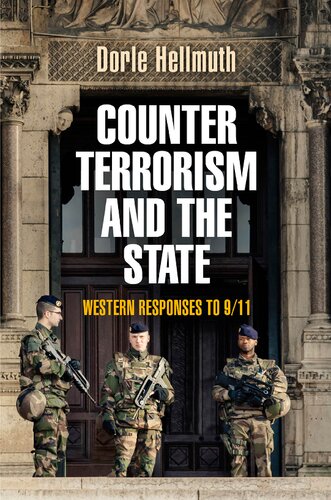

Most ebook files are in PDF format, so you can easily read them using various software such as Foxit Reader or directly on the Google Chrome browser.
Some ebook files are released by publishers in other formats such as .awz, .mobi, .epub, .fb2, etc. You may need to install specific software to read these formats on mobile/PC, such as Calibre.
Please read the tutorial at this link. https://ebooknice.com/page/post?id=faq
We offer FREE conversion to the popular formats you request; however, this may take some time. Therefore, right after payment, please email us, and we will try to provide the service as quickly as possible.
For some exceptional file formats or broken links (if any), please refrain from opening any disputes. Instead, email us first, and we will try to assist within a maximum of 6 hours.
EbookNice Team

Status:
Available0.0
0 reviews
ISBN 10: 0812247434
ISBN 13: 978-0812247435
Author: Dorle Hellmuth
Dorle Hellmuth argues that the nature of state responses to terrorism is shaped by the particular governmental framework and process within which counterterrorism measures are decided. Using four Western democracies as case studies, Hellmuth measures effects of government structures on counterterrorism decision-making processes and outcomes. In doing so, she examines how similar or different the responses have been in four parliamentary and presidential systems, and clears up common misperceptions about domestic counterterrorism efforts on both sides of the Atlantic.
Each of Hellmuth's four case studies reviews the official constitutional powers and informal relationships between executive and legislative branches, outlines decision-making processes leading to counterterrorism policies and reforms since 9/11, and summarizes how structural factors influenced those processes. By measuring and comparing structural effects, and by going beyond the common U.S. and British focus to include counterterrorism decision-making in Germany and France, Hellmuth shows that there are important similarities between those governments designed to constrain executive power (Germany and the United States) and those that facilitate executive power (France and Great Britain). Her analysis further demonstrates that in presidential systems executive and legislative branches have incentives to produce a steady stream of reforms, that presidents have more opportunities than leaders of parliamentary systems to expand their unilateral powers during times of crisis, and that choices designed to strengthen presidential positions influence the direction, nature, and scope of institutional reform.
Understanding the nature, scope, and trends of national decision-making processes in Western democracies, Hellmuth contends, is imperative to identifying new mechanisms for containing transnational terrorist networks beyond national borders.
1. The Conceptual Debate: Setting the Stage for Structural Analysis
2. Case Study I: The United States
3. Case Study II: Germany
4. Case Study III: Great Britain
5. Case Study IV: France
6. Comparative Analysis of Structural Effects on Counterterrorism Decision-Making
counter terrorism since 9/11
countries responses to 9/11
response to terrorism before 9/11
counterterrorism post 9/11
counterterrorism after 9/11
Tags: Dorle Hellmuth, the State, Western Responses